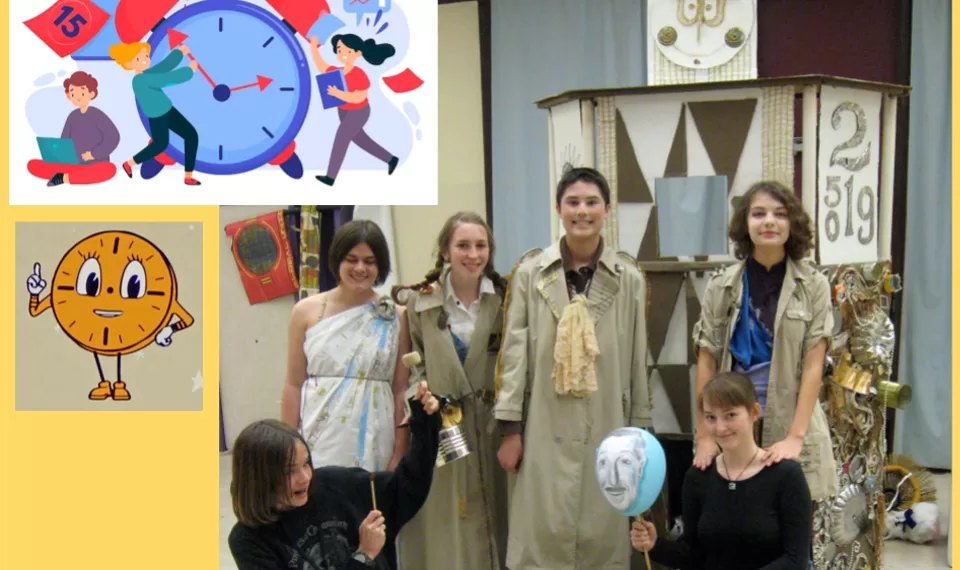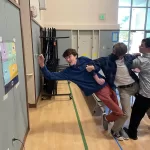Time Management is Critical for Long-Term Problem Solving
Teaching your team members how to organize themselves, how to make and keep calendars, the importance of checklists, and how to divide labor is NOT considered Outside Assistance.
Setting a Schedule-Team Calendar Have the team create a big calendar or use a store-bought desk calendar and mark the date of the Qualifying Tournament (QT) and the NorCal State Tournament (if the team advances). Coaches should also mark the date that tournament registration opens if the date or location of the QT is important to the team.
On a separate sheet of paper make a list of all the tasks that need to be accomplished.
The list might include:
- Decide the overall theme of the solution
- Brainstorm the storyline and how the required elements will be included
- Think about style elements. What extra things (not scored in the LT Scoring) does the team want to use for score?
- Create an outline of a script that incorporates the required LT and Style elements. Decide who will draft the script.
- Date when the first draft needs to be completed so the team can read through and fine-tune it
- Decide on costumes: How they will be designed/made, what materials are needed, who will actually make each costume, and when costumes should be finished
- Decide on the design of the membership sign, materials needed, who will work on making the sign, and when the sign should be finished
- Similar tasks for backdrop/scenery (if there will be one or more), props, other required style elements, and tournament paperwork
- Rehearsal: At least one full dress rehearsal should be scheduled to be performed for family and friends, with time to fix things that didn’t work correctly. Family and friends cannot tell the team what to fix/change. The team can view a recording of the rehearsal and make their own adjustments.
Pencil dates on the calendar so the team can tell if they are meeting their milestones.
During Team Meetings Regular team meetings are usually scheduled on the same day of the week and for 1-2 hours. During those meetings:
- Practice spontaneous
- Show and tell work completed by individuals or subgroups (if you have them)
- Review progress against the overall schedule. Brainstorm how to adjust if necessary
Clean-up should always be a part of every meeting by every team member.
During “Build Sessions” Teams will likely need a longer session to work together on big projects. These are called “build sessions” or work days and usually take place on a Saturday or Sunday. The team can add these to the calendar early in the year or choose to add them later. Build sessions can also be scheduled by part of the team assigned to completing a certain task and take place at one of those team members’ homes, rather than the usual meeting place.
Parents can be extra eyes for safety, teach how to use a tool on something not being used by the team, and/or remind the team members to get their task done, but they need to follow the rules and not offer outside assistance.
If the whole team is meeting, I usually had everyone bring a snack and scheduled 2 snack breaks on a 3-4-hour session.
Be sure the team has brainstormed the supplies they’ll need, and those supplies are purchased and/or brought to the session. Send reminders if certain members have offered to bring something.
Stay Positive! Be the cheerleader for the team. They CAN do it! When they complete a task, make a big deal about it and let the team member(s) cross it off the list.
End with something fun! One coach shared that she used a section of PVC pipe or a baseball bat and let the team take swings at items in the recycling bin, trying to destroy them with one swing. Of course, the team had to clean up after, but they were able to get any frustration out with that activity and left with smiles on their faces.
Good luck! And remember to HAVE FUN!
If the team is up for MORE…remember to schedule and sign up for one of the Spont Days and the NorCal Webinars offered to help teams and coaches.
Adapted from NoVA North, Region 9, Virginia Odyssey of the Mind






